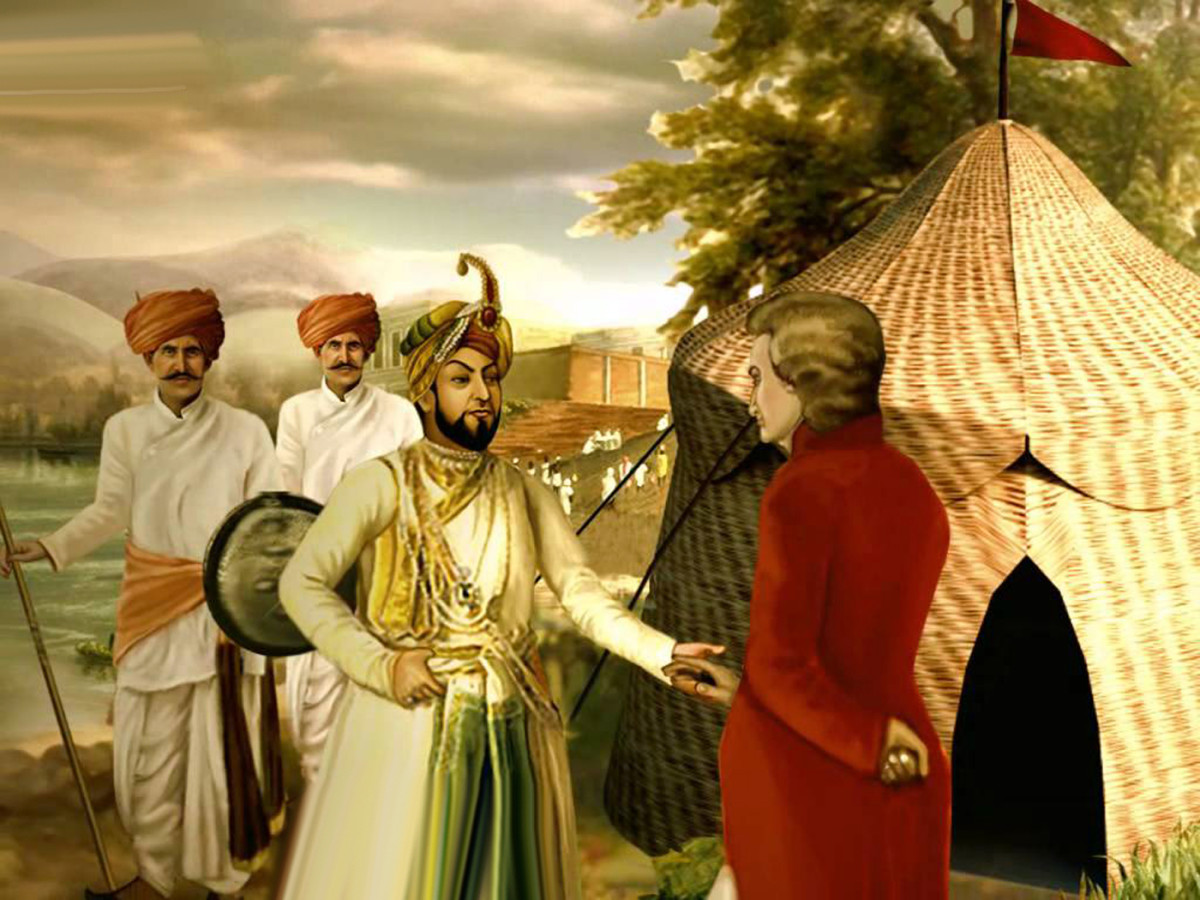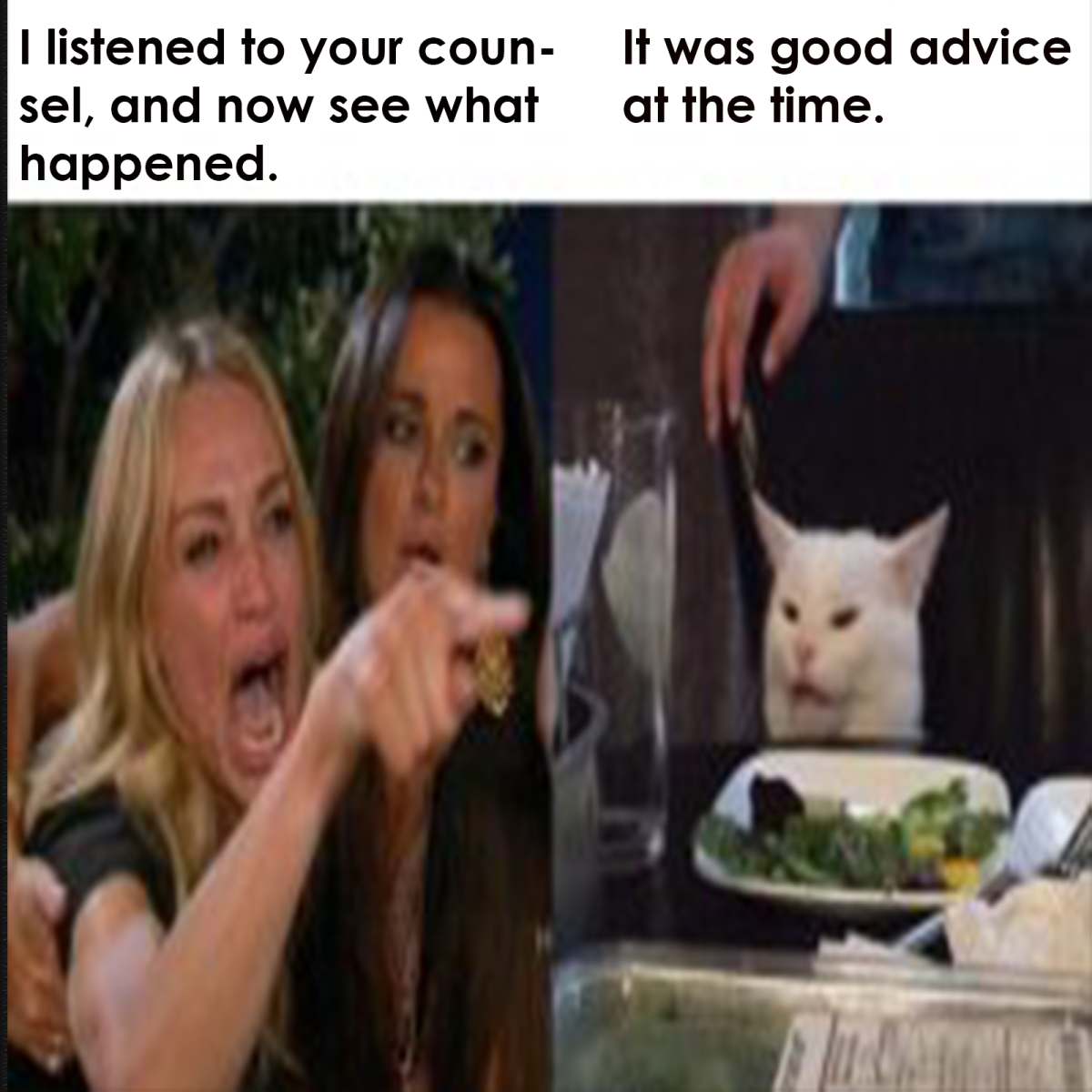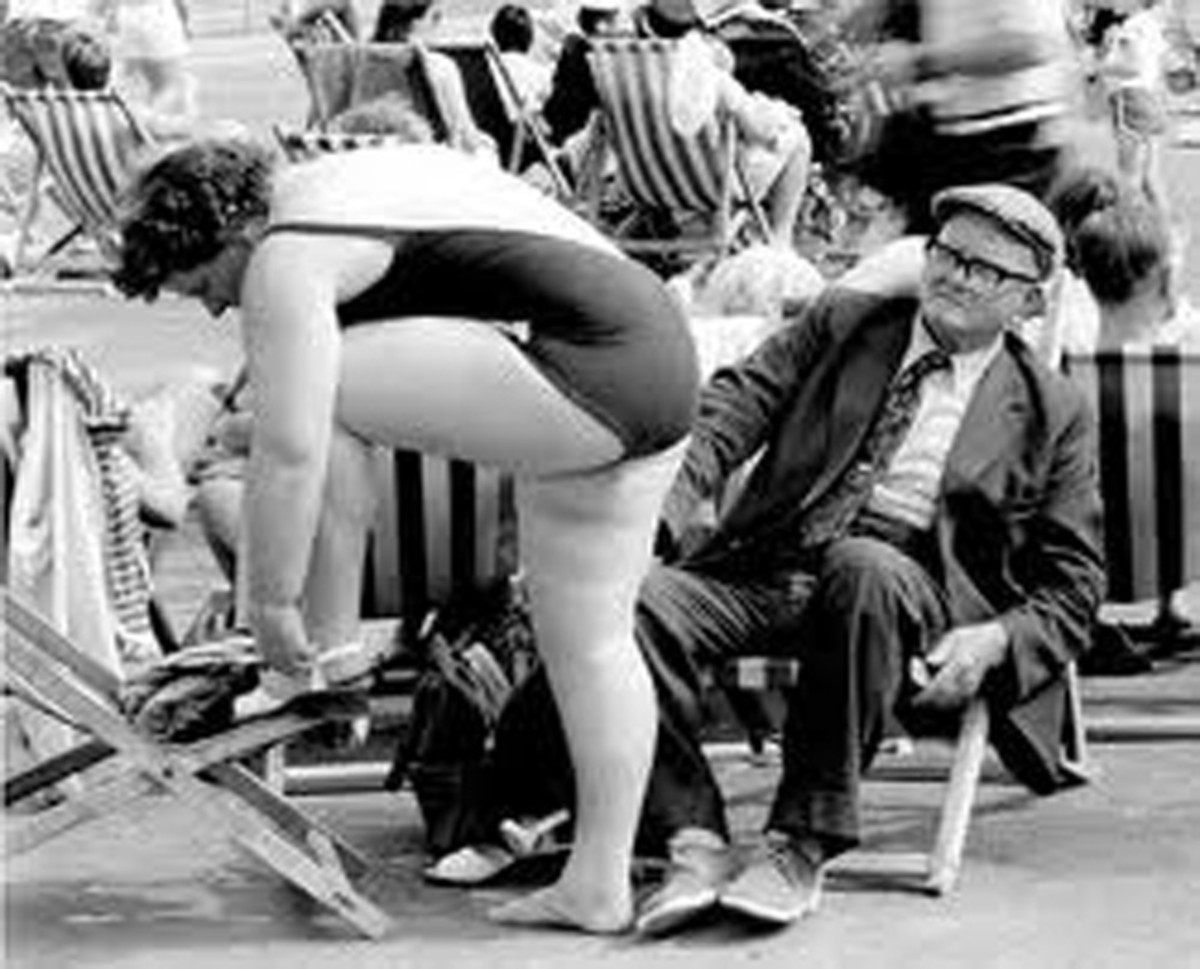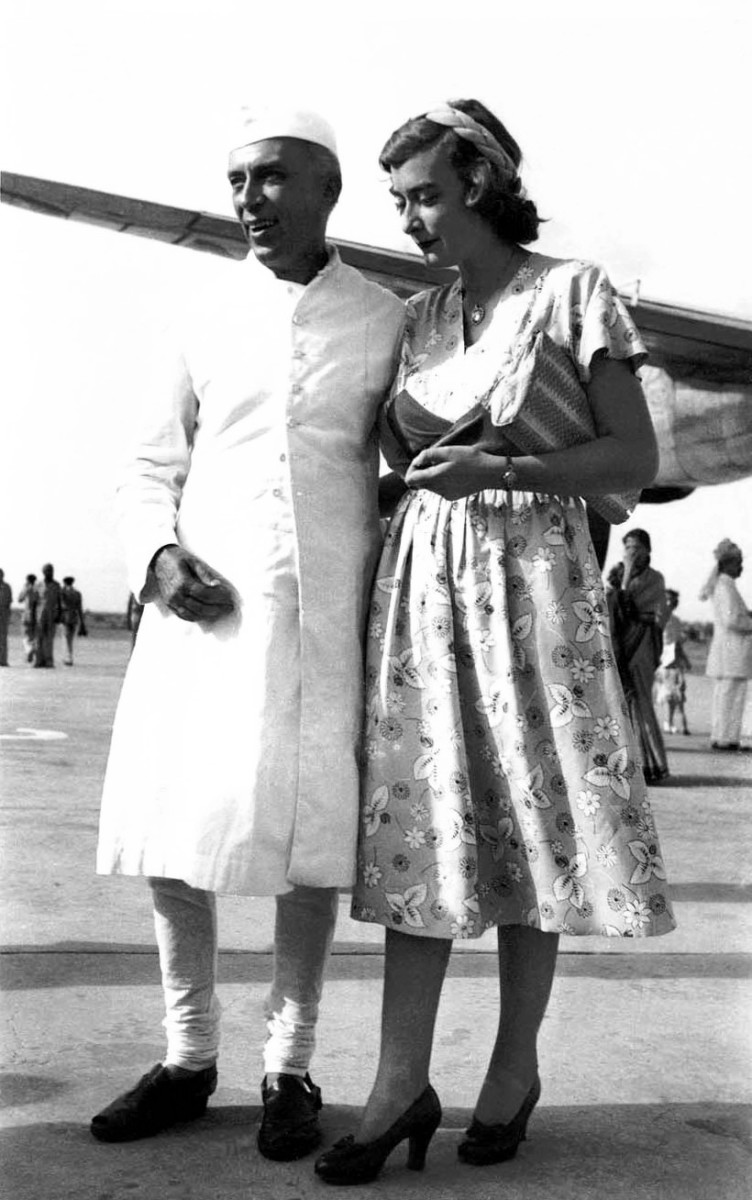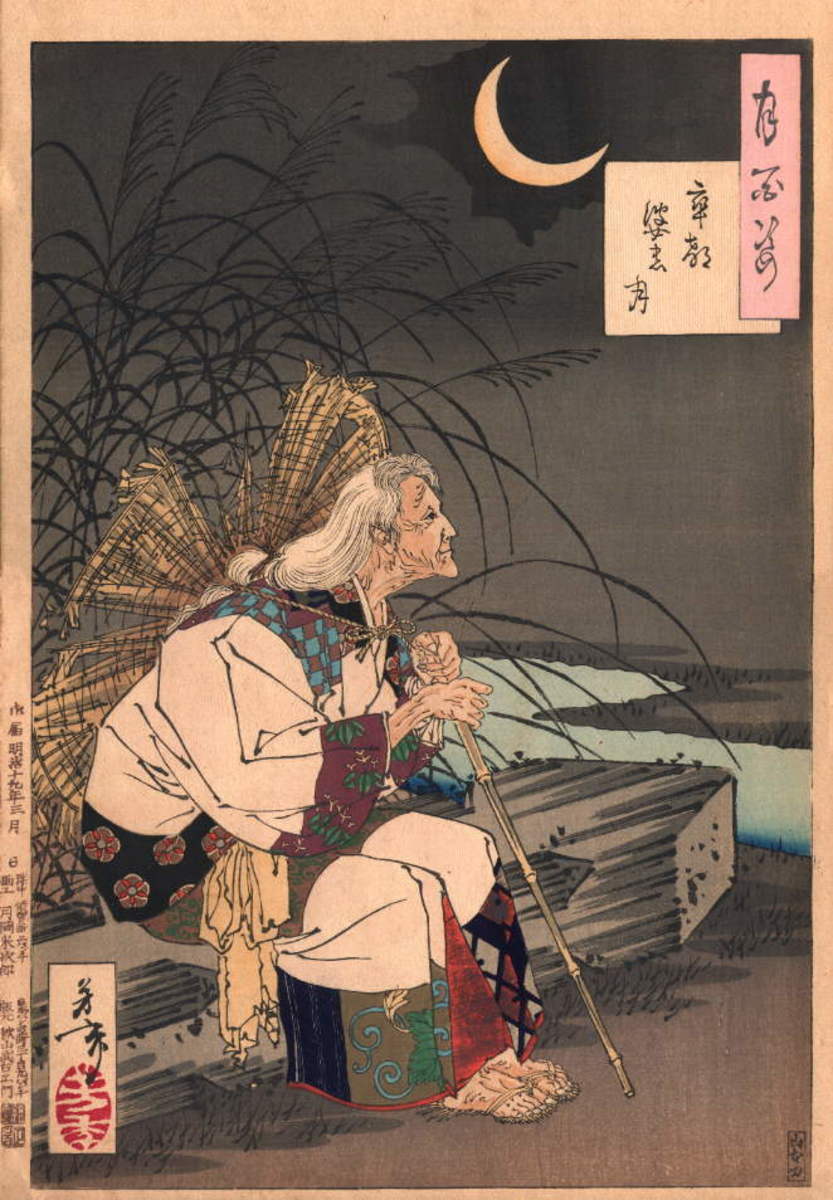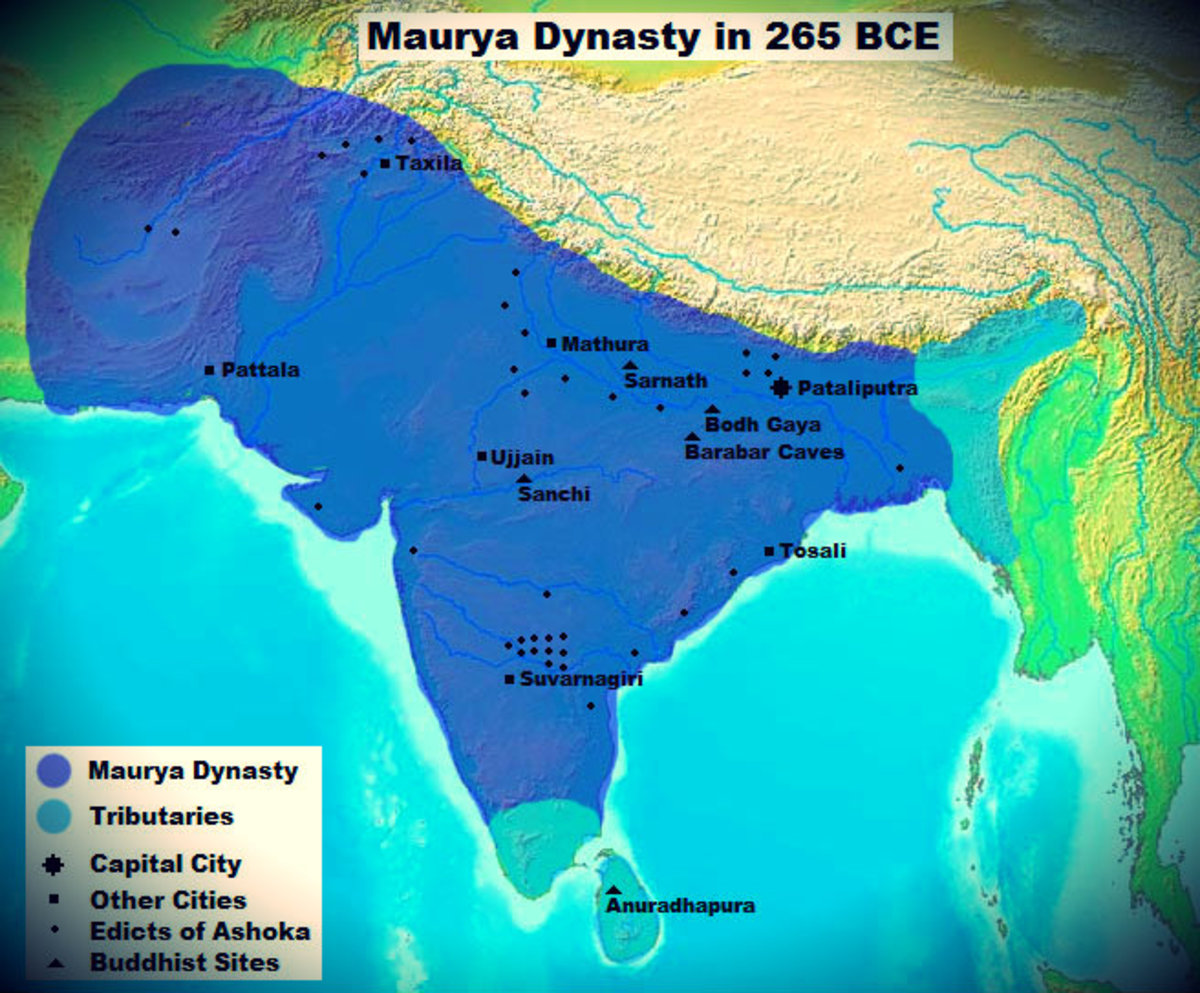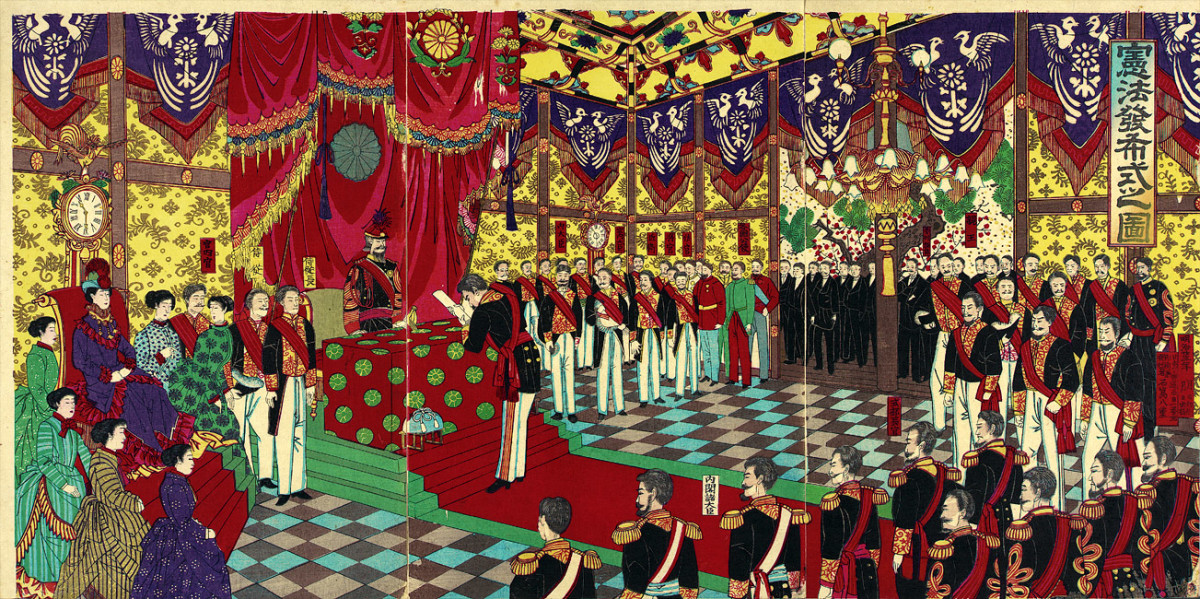The Darbar (part 5)
The Darbar. (part 5)
THE DARBAR
By
A.D.Sarkar
It was nearly the middle of May, the second Indian month of Jaistha when the very rich merchant Omichand arrived at Murshidabad the capital of the eastern region of the Moghal empire to attend the darbar. Darbar is a Persian word meaning entry to a hall. Persian became the court language for the Moghals possibly because being the central Asian brigands they only knew how to fight and kill, acts which did not require the tradition of reading and writing. In the land of the then India, darbar came to mean holding court by a ruler. The ruler for this particular occasion was the Moghal viceroy of Bengal, Bihar and Orissa, aged about 18 years, His Exellency Nabab Ul Mulk Sirajuddaula, the favourite grandson of the late aged ruler Alivardi Khan, friendly towards the British and other Europeans. Siraj was antagonistic to the British possibly because he was intelligent enough to see that what the British were really after was to occupy and rule India.
Young Siraj was dressed for darbar in his long white robe with a red sash. A silk cap adorned his head with a band of pearls going right round the cap. From the centre of this band a triangular piece made from two sets of pearls sloped towards the back of the cap. At the top of this triangle were fixed what looked like fine white feathers. He wore three pearl necklaces of unequal lengths.
He sat on the floor with begum Lutfunnisa. He has done this regularly since becoming the nabab. Whatever the engagement of the day, he would always arrive at eight in the morning to spend an hour with his wife and a two-year-old baby daughter. Begum Lutfunnisa looked at him. Her husband was beautiful; a delicate effeminate face. He was clean shaven except for a small moustache. His skin was nearly as fair as that of a sahib. There was good reason for this because his grandfather was a Turk. Lutfunnisa also had a similar origin but that was a long time ago. Over the centuries her line had been diluted with Indian blood so she was not as fair-skinned as her husband.
They were sitting side by side holding hands. The suba, nabab, looked at the begum for a while. His doe-eyes seemed moist as he said, “Your eyes are black like the mountains in Bihar at night from a distance. You are more appealing than the white flowers you wear round your hair.” He kissed her gently and said, “I love you.”
The begum bit her lower lip for a few seconds and got up suddenly to go to the enclosed balcony. She stared out through the chinks at the large courtyard and the gardens and buildings beyond. The nabab followed her. He held her gently in his arms and said, “If I were a Hindu I would have asked a devata to grant me the boon to be with you again in my next incarnation.”
“But you don't love me,” said the begum in a soft voice without looking at him. She sounded as if she was in a far off different land. The nabab looked frightened. It appeared to him that the Hindu devatas were plotting against him. He had a deep sense of foreboding.
He asked gently after a while, “Why do you say that?”
“Ask yourself janab, your Excellency,” she replied bluntly. “When was it last time you spent a night with me?”
“Oh that!” whispered the teenager. He moved back to the room and sat on the cushioned floor. He was not aware that he had not slept with his wife for a long time. Cannot be very long- he thought because they had only been married for about two and a half years when they were both children themselves. He raised his voice unnecessarily as he shouted, “I did not think it was necessary.”
“Hush”, whispered the begum rushing into the room. “You will wake the baby.”
“I said,” repeated the husband lowering his tone, “It is not necessary for me to spend the night with you.”
The young begum looked at him fiercely and said, “Yes you would rather spend your time with all the concubines and whores who surround you.”
“But that has nothing to do with love!” protested Siraj in an aggrieved tone.
The begum sulked. The nabab was sorry to see that his wife was conflating carnal motivation with what he has learnt about love by listening to scholars who occasionally used to have scheduled, private audiences with his grandfather. The former is a biological compulsion. Love is emotional entanglement of the true essence of a person with the individuality of another.
The young husband of a younger wife became pensive. His grandfather always encouraged him to attend these meetings. That probably was the only way he could educate him because, like his grandson, the old man could neither read nor write. The boy missed his grandfather.
The begum spoke suddenly. “What will you do if I entertained other men?”
The unexpected statement of his wife shocked Siraj. He shouted, “Don't talk like that. They will stone you to death.”
The baby woke up. The young father went over to her, threw her in the air a few times and did some baby talk before putting his daughter down on the mattress. He picked up his sword, walked over to his wife and held her gently. “You are the bul-bul,” he said, “that hovers in the sky and sings melodiously. You are the beauty to admire; not to assault. The Hindus probably think of you as a devi.”
Lutfunnisa chuckled. She seemed pleased suddenly. She said with mischief in her eyes, “How could Hindus think anything of me? Outsiders are not allowed to see a Muslim woman in my position!”
The nabab avoided her logical statement because he knew the folly of his own comment before. He said “When my problems are over I will build a mausoleum bigger than the Taj Mahal. I will call it Lut Mahal. You and I will be buried there.”
Lutfunnisa put her arms round him. She looked at his sad moist eyes and said, “What problems my Lord. The suba, His Excellency, Nabab Ul Mulk, Sirajuddaula cannot have any problems; never.”
The British always troubled him though even when his grandfather was alive. He knew from the scholars that they were a predatory race. They have been to many lands very far away from their own. With their long experience of invading foreign domains and with their ever developing weapons of mass destruction they destroyed or degraded the natives and declared their land to be British territory. Hindustan is going to fall in their hands if he cannot destroy them first. He had a lingering sense of premonition. He mentioned this to Amina begum, his mother, whom he visited next.
The begum told her son that the British had been very helpful to the cause of the Indian Muslims. They police the route to Mecca for the pilgrims with their powerful navy. Before them, the Portuguese pirates made sure of looting all the possessions the pilgrims had and even of carrying off the able-bodied men as slaves. The rest they would convert to Christianity.
The begum repeated that the British protected the pilgrims and all the Indian ships which sailed the Arabian sea. The Moghal emperors were glad of this and that was why they were given especial privileges regarding trade and were allowed to build warehouses and fortify them.
The son listened attentively but said, “Why have they got to fortify?”
“To protect their merchandise,” came the quick reply.”It is the duty of all rulers to protect life and property. Can you say in all honesty that protection of life and property is assured in Hindustan?”
The nabab thought for a while and then said, “The British have more privileges than they should have. They trade without paying any duty whereas all the Indians and other foreigners have to pay toll duty and other taxes. All that the British have to do is to fly their flag on boats carrying their goods and nobody dare touch them. I can understand the East India Company having a few rights in lieu of their services on the Arabian sea but the individual private traders are managing to evade taxes by simply flying their flags.”
The begum made no comments. At this the son roared into laughter and said, “I have got you there haven't I?”
The mother replied with a smile, “You have that.”
“I don't trust the British,” mused the nabab.” And they are so arrogant! They don't acknowledge me. I don't receive any gifts from them. The Dutch and the French always send something. The British give shelter to my enemies. I will not be surprised if they are giving covert support to aunt Ghasiti who has decided to oust me and seat cousin Shaukat on the masnad, the throne.”
Amina begum listened to her son but said nothing. She was thinking. Her son was young and inexperienced. There were dark forces among his own courtiers and family members. As a woman she was powerless. All she could do was to ask him to be cautious and diplomatic. She did so a few times. She emphasised that affairs of state were not managed with a hot head. Great tact was necessary.
A group of Afridi eunuchs escorted the nabab from the zenana, the female quarters. They made a ring round him and looked formidable with their scarlet robes, javelins and wide-bladed swords held in scabbards tucked in the waist band. As they arrived at the courtyard, a dozen French gunners took over from the Afridis. They wore white tights and shirts, blue coats and hats of the same colour. They marched flanking the nabab with their matchlocks resting on their shoulders. The nabab stopped outside the darbar hall where he was met by Jean Law, the Head of the French factory at Kasimbazar.
There were Raja Manikchand and Mohan Lal, both Hindus and suba's army commanders. The fourth person was another commander, Mir Madan, a Muslim. All of them bowed and moved their palms towards their chests three times as protocol dictated. The nabab, being very pleased to see them, smiled and then moved back a little and seemed to inspect the sandstone buildings around the courtyard.
It was nearly the middle of May, the Indian month of Jaistha. Even at ten in the morning the sun was hot and seemed determined to bake the life out of all living creatures without mercy.
The Frenchman and the three Indian Generals moved close to the nabab who said unceremoniously, “Hindustan hamara hai – India is mine.” The four men were surprised because they were unaware that the nabab spoke Urdu.
In the darbar hall the nabab sat on a throne while behind him stood the French guards with their matchlocks resting at an angle on the floor. Below the nabab, on one side of him sat Jean Law and Mohan Lal and on the other side Mir Madan and Raja Manikchand. Jean Law sat on a low stool while the others sat on the mattressed floor, cross-legged. Further below were seated Mir Zafar, Rai Durlabh, Jagat Seth, Omichand and many other notables. Seth is a title, meaning merchant and Jagat Seth means merchant of the world. The Seths were a family of merchants from Marwar to the west of Bengal with head offices in Murshidabad, the capital of the Moghal viceroy, but with banking activities all over northern India with an income of four million rupees a year. Jagat Seth was the senior-most partner. The Seths were dissatisfied with the present ruler of Bengal, Bihar and Orissa.
The noblemen came towards the nabab and presented him with gifts of jewels, pearls or money. It was a small gathering and the process of gift offering being over, the nabab made a brief speech. “Honourable Sirs,” he began in a matter of fact manner, “My grandfather contained the Marhatas, a formidable force who even brought the mighty emperor of all Hindustan to his knees. I am the grandson of that tiger. Since the British from a land far away from ours came and intervened in our country, good governance is gone and lawlessness is increasing by the day. Our treasury is losing what is due to it because of the corrupt practices of these foreigners. I will bring these insignificant British traders to their knees. I don't need an army. A few slaps from my slippers will make them turn tail.”
“Karamat – wonderful – karamat,” shouted the noblemen mechanically.
“But,” continued the nabab, “if it is war they want, I have my patriotic and able Generals.” He pointed to Jean Law, Mohan Lal, Mir Madan and Raja Manikchand.
A Hindu General Rai Durlabh approached the nabab. He bowed as he made his obeisance and said, “Your Excellency I am hurt that you omitted to mention your humble servant.”
“Humble servant!” retorted the nabab. “Are you my humble servant? Have I not heard of you conspiring with my aunt Ghasiti begum? Tell me you infidel. Have you not got designs to put my cousin Shaukat on the masnad of Bengal since my aunt's adopted son Akram died?”
“My suba,” protested the General. “I have enemies. They have deliberately misinformed you for you to conclude as you have done that I am against you. The great late nabab, your grandfather, saved Bengal; brought peace and prosperity. You were his choice. The emperor at Delhi approved you so you are the legitimate ruler to succeed your grandfather. I accept your accession to the masnad gladly. I will defend you with my life.”
The nabab ignored him. He turned to his grand uncle- in-law Mir Zafar, the commander-in-chief and shouted, “Old man, what do you say? What are you scheming at the moment?” Many members of the darbar winced. It was not done. No matter what position one held, a mere youth to address a grand uncle-in-law or one of that generation whatever his status in society was regarded as totally unacceptable insolence. Fortunately Mir Zafar did not hear him. He appeared to be asleep. The young man guffawed loudly. “Look at him,” he said pointing a finger at Mir Zafar, “He is in a state of stupor. How many lumps of opium have you smoked today you useless old fool?”
Miran was hurt. He said, “Forgive my intrusion janab. He has not been very well lately. He came to the darbar out of respect for you. I can assure the suba that my father is totally loyal to you.”
Sirajuddaula listened without even looking at him. When Miran finished he said, “Any way, I want the British out of my country. They must not be allowed to take over Hindustan and make us their slaves, destroy our culture and impose their own.”
Jagat Seth, the very, very rich banker said, “Janab the British are a source of substantial revenue for us. Driving them out will make the country poorer.”
“How are they a source of revenue to us?” queried the young ruler. “They don't pay any duties?”
“The money circulation is helped by them indirectly your Excellency,” replied Jagat Seth. “They are the biggest buyers of silk, cotton and saltpetre. That keeps our industries going. Those who sell to the British have to pay taxes to the exchequer. Furthermore the British have encouraged trade in opium consistently.”
The young man probably did not understand what the seth said. He became flippant and shouted, “So our friend over there must love the British,” interrupted the nabab as he pointed to Mir Zafar who had nodded off to sleep.
Jagat Seth ignored the comment but continued to say, “The reason for their interest in opium is that they sell it to the China men who are particularly addicted to the stuff. In return the British procure tea from China.”
“How does that help Hindustan?” asked the nabab.
“It is business janab,” replied Jagat Seth. “A new product means further circulation of money in our country; perhaps new industry. All of this will increase the wealth of Hindustan.”
“You mean increase the wealth of the British!” retorted Jean Law. Then he stood up and begged the nabab's forgiveness for speaking out of turn.
The nabab made a gesture with his hand to indicate that that was all right. He said, “Monsieur Law has answered you perfectly. What do you say to that, you money -grabbing migrant?”
Jagat Seth was furious. Yet he replied with a hint of ridicule in his delivery but with a calm voice, “Excuse me your excellency. How many of us here are Bengalis? Monsieur Law is a Frenchman; Mohan Lal a Kashmiri; Mir Madan is probably a Turk or Afghan; and you? According to your argument you should go back to the land of Chenghis Khan and Timur-i-Lang. By being born in Bengal does not make you a Bengali. It will take centuries, many of your future generations who could regard themselves as authentic Bengalis!”
An eerie silence fell upon the darbar hall. Members were stunned at the audacity of the banker. Even Mir Zafar showed signs of life and the nabab became venomous. “What did you say?” he shouted and in a flash went over to Jagat Seth and slapped him. The much revered banker toppled over. The Moghal nobleman who remonstrated with the nabab during the ordeal of Dana Shah at the Catwa fort not so long ago broke protocol, picked up Jagat Seth and put his turban back on his head.
Siraj back on his throne by now, shouted, “Did I give you permission for that?”
The nobleman answered, “Permission was not sought young Sir.”
“I am surrounded by traitors,” shouted the nabab as he stood up again. “Call the guards and lock him up.”
The sergeant of the guards came by himself with a rope which he tied round the waist of the nobleman loosely and gently guided him to the exit of the darbar hall.
“I protest strongly at the behaviour of an immature, uncouth youth,” shouted Rai
Durlabh. “Release the nobleman and apologise.” He went for his sword.
“How dare you,” roared the young nabab. “You Hindu infidel; ignorant idol worshipper. I will have you circumcised.”
The situation was getting ugly but was saved for the time being by an emissary who bowed deeply and sought the suba's forgiveness for disturbing him especially when he was at the darbar. He said that at the nabab's command he went to deliver his letter telling the British to stop fortifications and return Krisna Das with all his money. He was unable to ascertain if anybody read His Excellency's letter but a few coolies were summoned from the black town. They brought some resin and a few soldiers smeared him with it after stripping him naked. He was then taken to Chitpur and from there to the river bank. A few untouchables were called who emptied the contents of a lavatory on his person. After that he was chased by European soldiers right up to Kelsall's Octagon and left there. He had to spend many hours cleaning himself and he travelled to Murshidabad by the first available boat.
He sobbed as he said, “Janab, if a subject of yours cannot move freely without being molested by these hateful melechchhas, then the world might as well end for us. Kill me your Excellency but please never again command me to go to Calcutta again.” Siraj listened in silence. The atmosphere had that lull which precedes a storm. The noblemen felt sympathy for the emissary. Even the French gunners stirred a little. Sirajuddaula picked up a jewel from the day's gift and gave it to the man. “You go home now,” he said. “Nobody is going to ask you to go to Calcutta again.” The man did his salam with his head nearly touching his knees and left walking backwards to the tall arched opening. He did a salam to the tied-up nobleman and bowed to the sergeant both of whom were waiting probably for the nabab.
It was now Omichand's turn to speak. “Your Excelleny” he began.”As you know my main object in living in white town is to keep an eye on these hatmen. I have to say that they are as treacherous as they are dirty. To begin with they are adding fortifications to their fort. My spies tell me that they have mounted huge cannon around the fort. They have built fortifications all over the perimeter of the Marhata ditch. They are training their troops for active service. I have heard that more troops are on their way from Bombay and Madras. They have even conscripted the Eurasians.”
“How can they bring more men?” queried Rai Durlabh.
“Yes, yes – how?” spoke Mir Zafar for the first time.
“It is easy,” replied Omichand. “They have got a huge amount of money from Krisna Das. Ghasiti begum is also supporting them.”
The nabab looked worried. He asked, “Have you talked to them about my demand for returning Krisna Das and stopping fortifications?”
Omichand handed him the letter from Governor Drake. The nabab had the letter read by Mir Madan who did so discreetly and very quietly. His face like a storm, he got up from the throne and paced up and down for a while. Suddenly he shouted, “These British! I will destroy each one of them. Whom does India belong to? Who is the suba of Bengal? Is it Drake or is it me?”
“We march to Calcutta and raze it to the ground,” suggested Omichand.
“Yes that's what we will do,” agreed Sirajuddaula. He further added, “We can take on Europe. What is the population of Europe? 2,000 – 3,000?”
Rai Durlabh spoke again, “We have a huge army but the soldiers have not been paid for well near three months. I doubt if they will fight unless we cover the arrears right away.”
What arrant nonsense, thought the nabab. He said, “Why is pay so important? Calcutta, I understand, is a rich city. The streets of White Town, they say, are paved with gold. There is plenty for them to loot.”
Mir Zafar became alert. “That alone will not satisfy the soldiers. They will have to be paid their due in cash.”
“How much will that cost?” asked the nabab.
“It could run into many hundreds of thousands of rupees,” replied Mir Zafar.
“We have our banker here,” said Sirajuddaula pointing to Jagat Seth. “He will find the money.”
Jagat Seth sat in his place sulking. The nabab repeated himself but the Seth would not even look at him. True to form the nabab flew into an uncontrollable rage. He shouted, “How dare he ignore me! I will circumcise him myself. He will cease to be a Hindu then.” He then drew his knife and was about to pounce on Jagat Seth when Jean Law restrained him by grasping his knife wielding arm. Mohan Lal held his other arm tightly. Mir Madan and Raja Manikchand came over to assist. “That hurts” moaned Siraj.
The French gunners made a concave arc behind the nabab with their matchlocks pointing towards Mir Zafar and other courtiers. The nabab dropped the knife, paused a little and hit Jean Law gently on the chest with his right fist and said with friendship in his voice, “You pig eating hatman!” He pressed his fist against Mohan Lal's cheek and said, “You idolatrous infidel!” He glanced at Mir Madan and Raja Manikchand and said in a tired voice, “It is time to eat and rest a little.”
They moved towards the arched exit and stopped as the sergeant of the guards did his salam while holding the end of the rope that went round the waist of the Moghal nobleman. “What shall I do with my prisoner, huzoor?” Indian potentates or persons of high importance are often addressed as huzoor.
A highly irritated Mir Madan shouted “Release him.”
The sergeant looked at the suba who nodded and moved on away from his erstwhile companions. The sergeant, who by now was highly nervous, had difficulty in undoing the knot of the rope. Mir Madan pushed him out of the way and with his knife cut the rope round the nobleman's waist and brushed his tunic with his right hand as if to remove a speck of unwanted foreign matter. Raja Manikchand gave him an unused flask of fresh water which he drank in large quantity and used the rest to swill his face. Monsieur Law drew a clean white napkin from his saddle bag which the nobleman used to dry his face. The sergeant brought his horse to him. Mohan Lal said to the slightly refreshed nobleman,“Come and join us for a meal.”
Siraj did not eat nor sleep after the darbar. Around four that afternoon he headed south of Murshidabad with one hundred armed Pathan horsemen, his personal bodyguards. Sirajuddaula was riding his favourite white stallion. A few civil administrators followed in camel carts together with a thickly curtained empty palanquin.
About five in the afternoon they came to the edge of a large lake covered here and there with leaves of lotus and water lily. There were white swans looking as idle as the water in the lake which was surrounded by tall palm and shorter date trees. The group went around the lake and came to the front entrance of a huge palace built of sandstone. There were guards at the gate who were overpowered and disarmed by the Pathans. As the horsemen trotted in more armed men appeared and a skirmish ensued. The Pathans cut down the men in a few minutes. This was Motijhil, the pearl lake. The palace belonged to the nabab's aunt, Ghasiti begum.
As Siraj sat on a mattress in an interview room the begum spoke to her nephew from behind a screen. She asked, “Have you stooped so low that you attack a defenceless woman?”
“You are no ordinary woman, begum Ghasiti,” replied Siraj. “You have entered politics. You are an instigator. You are a powerful intriguer against me.” There was no answer from the begum. The nephew broke the pause. He said, “You never liked grandfather's decision in my favour. First you wanted Akram. When he died you wanted Shaukat. You still do. You are in league with him and the British.”
The nabab noted with an amount of surprise that the begum appeared from behind the screen and sat beside him. This was against Islamic principles. Though a nephew, he was visiting her as the nabab so officially a stranger with whom a lady should not be familiar. It was not a family gathering!
The begum said, “Most of the family hated you. You were a cruel boy. You took pleasure out of plucking the feathers out of live birds. You used to overturn the dinghies of poor people and take pleasure in seeing them drown while your guards shot at them if they tried to swim ashore. They say you used to laugh and laugh at their predicament. You started building your harem when you were merely sixteen. No women were safe from you. You had a special lust for beautiful Hindu women. You drank and drank until you were silly.”
“I don't drink any more,” said Siraj holding his aunt's hand and laughing.
Begum Ghasiti took a good look at her nephew and whispered, “I don't believe you.”
“I had to,” said Siraj. “Grandfather made me promise on his death bed.”
The nephew lay on the mattress with his head on his aunt's lap. She stroked his face for a few seconds and said, “You look drawn. Is something troubling you?” She then laughed embarrassingly.
Siraj looked at her with a serious face and asked, “Really, did the whole family hate me?”
“Yes,” replied Ghasiti begum without hesitation. “All except your mother Amina and nabab Alivardi. I tried to persuade them to knock some sense into you but they were both such fools where you were concerned.”
“You loved Akram?”asked Siraj.
“Oh yes, yes,” replied Ghasiti begum with deep sadness in her eyes. “He was so pleasant. Your opposite. Full of understanding and compassion for the underdogs. He was just not my adopted son. I felt I was his mother. He died so young!”
A long silence followed which was broken by Siraj. He asked, “Do you love Shaukat? The begum did not answer. The nabab raised his voice. He complained, “How can you love him? He is no better than me! He is a debauch, a drunk, a drug addict. You name it.”
“Hush, hush child,” came a distant voice as the begum raised the head of Siraj and held it tightly against herself. She seemed to hum a lullaby. Siraj fell asleep. Suddenly he was a boy again; that innocent first decade and one half when all that is painful is the act of growing up; when all that is frustrating is not growing up fast enough.
In a while Siraj opened his eyes. He looked at the begum for a while; very gently brushed the tears away from her cheeks with the back of his hand and asked superfluously, “Were you weeping auntie?”
“Perhaps,” she replied dismissively still looking at her nephew. Suddenly she pushed Siraj away and got up. Siraj stood up as well. “So what is in store for me?” asked the begum. “Am I to be beheaded?”
They both walked out. The eunuchs came and escorted the begum to the heavily curtained palanquin which was brought inside the palace.
The nabab's civil administrators collected a fortune in gold, silver, diamonds, other precious stones and hard cash without permission or apology. By seven that evening the nabab, his Pathan horsemen and the civil administrators about turned from Motijhil.
In about a quarter of an hour Siraj galloped towards the palanquin, dismounted and, leading his own horse, walked alongside it as the bearers slowed down automatically. He said, “You will stay with me for a while auntie.” The begum did not respond. “You don't really hate me, do you?” He asked after a while in a stubborn boyish manner. The begum did not answer. “Take care then,” said Siraj as he mounted his horse.
“Come and see me now and again as long as I am around,” said the begum. The nephew galloped away to his Pathan horsemen. The palanquin moved faster. The men exhaled. Unusually, they decided to chant rhythmically in Bengali with their in-breathing and out-breathing, “Onwards, onwards, ho -onwards; Chalo, chalo, ray - chalo”
----------------------------------------------

